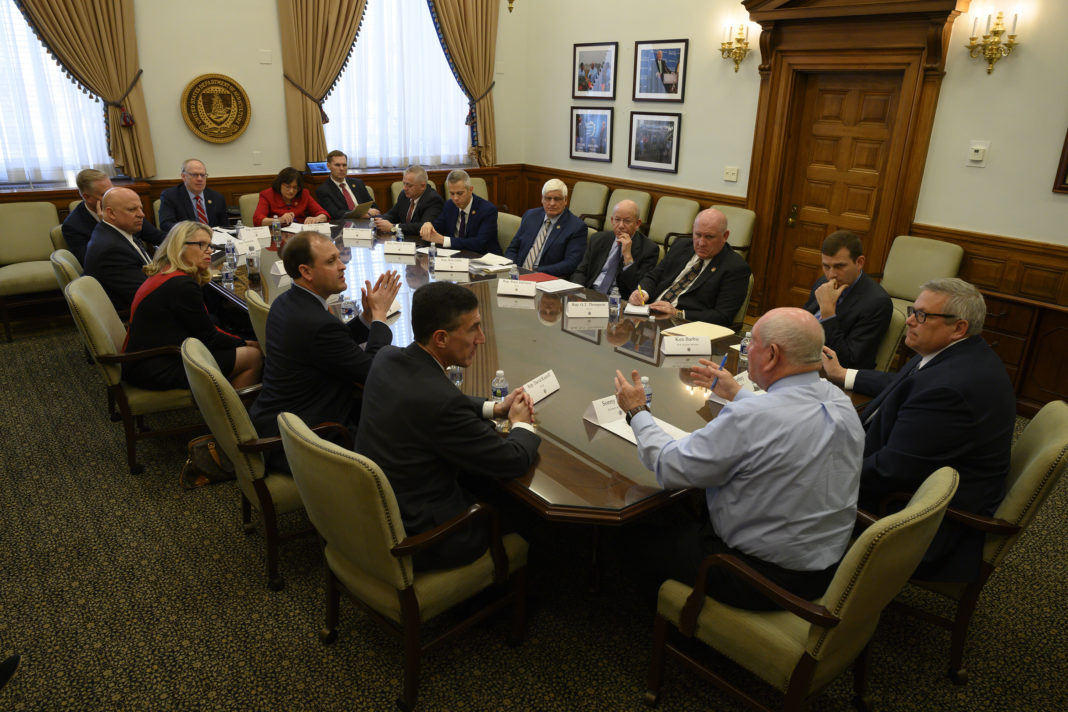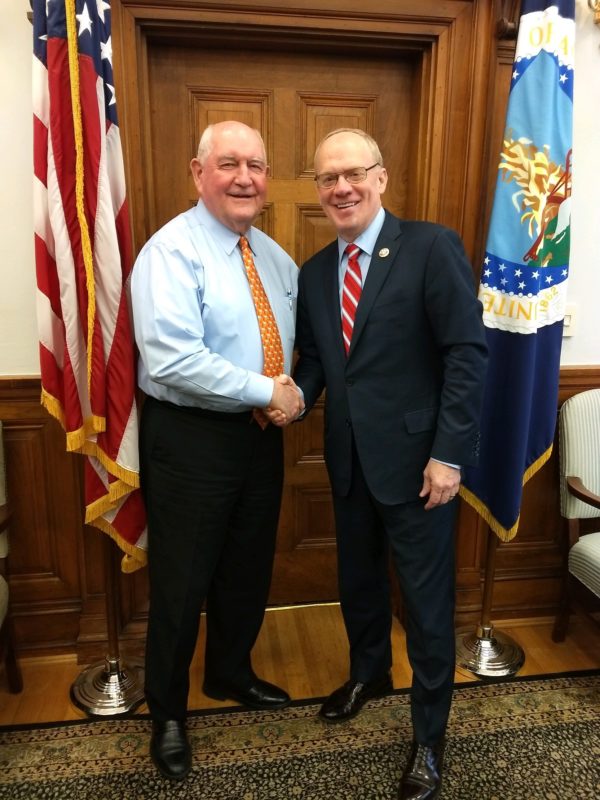
By Michelle Price
Special to the UCBJ
WASHINGTON, D.C. – U.S. Rep. John Rose went to bat for Tennessee hardwood lumber producers and industry workers in a meeting with U.S. Secretary of Agriculture Sonny Perdue in Washington, D.C., last week, sharing the struggles that this industry is currently facing.
Today, a statement from the Chinese State Council Tariff Commission said, “Tariffs on multiple species of hardwood logs and lumber may be retracted starting Feb. 28, 2020 for the duration of one full calendar year through Feb. 27, 2021.”

“Secretary Perdue provided an in-depth report on the continued progress of a Phase One trade deal with China, specifically as it relates to the hardwood lumber industry,” Rep. Rose said. “The success of a Phase 1 agreement is very important to the many family-owned hardwood lumber businesses in Tennessee, and I am grateful for my constituents who brought this critical issue to my attention.”
Rose reflected, “In the Phase 1 agreement with China, China is promising to buy $40-50 billion worth of agricultural goods over the next two years, and that includes logs and lumber. The problem is they haven’t yet taken the 25% tariff off that applies to many of the species of lumber.”
Today’s announcement suggests that the removal of that tariff is imminent and would not come a moment too soon for the industry.
“The US hardwood lumber industry and exports might be a total of $4 billion a year… that’s a whole lot of rural families,” said Parker Boles, president of Hermitage Hardwood. “This is not a metropolitan business, it’s a rural business affecting rural families in rural America because that’s where the bases are. You don’t go into the middle of a city and cut down a select harvest of attractive timber growing somewhere there. They’re all rural.”
Most hardwood lumber production is done in the central and eastern U.S. Half of all hardwood lumber produced in the United States is exported to China. In the last several months, sales to that market have declined by 42%.
“There are sawmills all over the eastern U.S., family run operations, and they are all being affected by this, working shorter hours and saying, ‘How long can we wait it out?’,” shared Boles
Instead of adding the 25% tariff to the cost of the hardwoods being shipped to China, Chinese companies have taken the tariffs out of the price paid to the companies shipping product to the country, effectively reducing these companies’ income by the amount of the tariff and collapsing the value of the commodity.
“I appreciate my friend and colleague, Rep. John Rose, for joining me today at the United States Department of Agriculture to discuss the economic challenges facing the hardwood lumber industry. The hardwood industry supports 685,000 jobs and it deserves our strong support,” said Kustoff.
“In Tennessee, nearly 38,000 families rely on the hardwood lumber industry as a way of life,” Rose added. “These families depend on sales to China. The severe disruption the hardwood lumber industry has faced in recent months has significantly harmed business owners and families in Tennessee.
“I thank my friend and fellow Tennessean, Rep. David Kustoff, for his leadership on this critical conversation,” Rose stated. “Together, we are seeking solutions for Tennesseans, and I know the Trump Administration will continue seeking relief for those working in Tennessee’s hardwood lumber industry, as well.”







